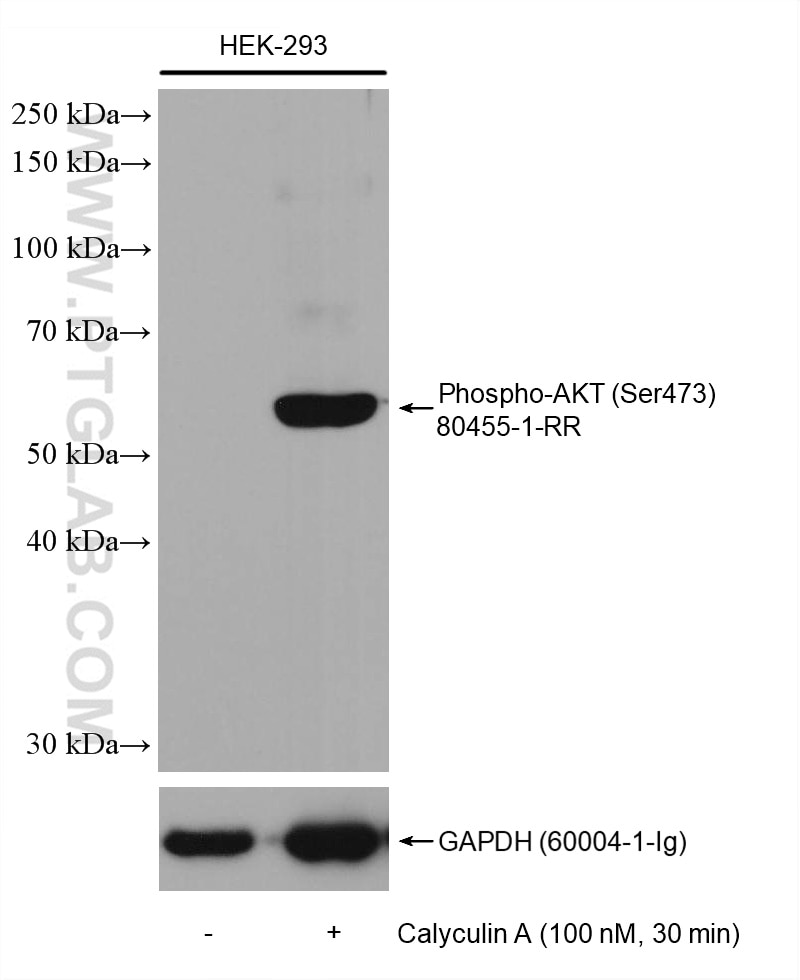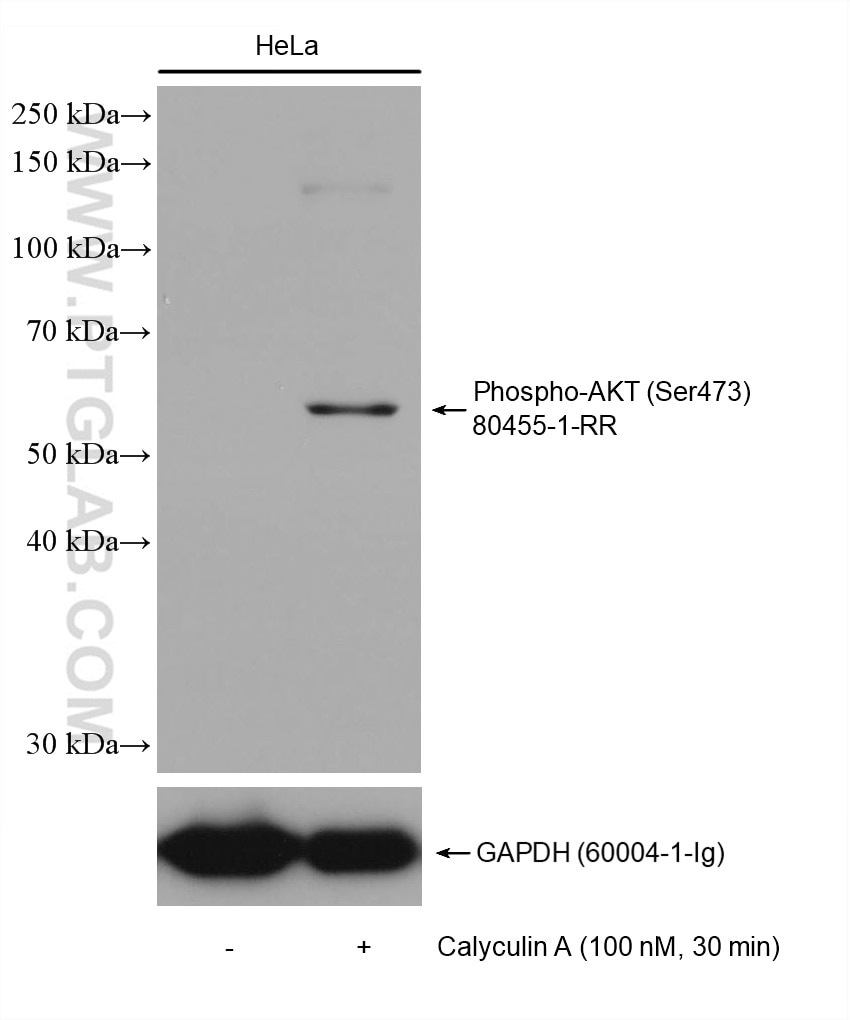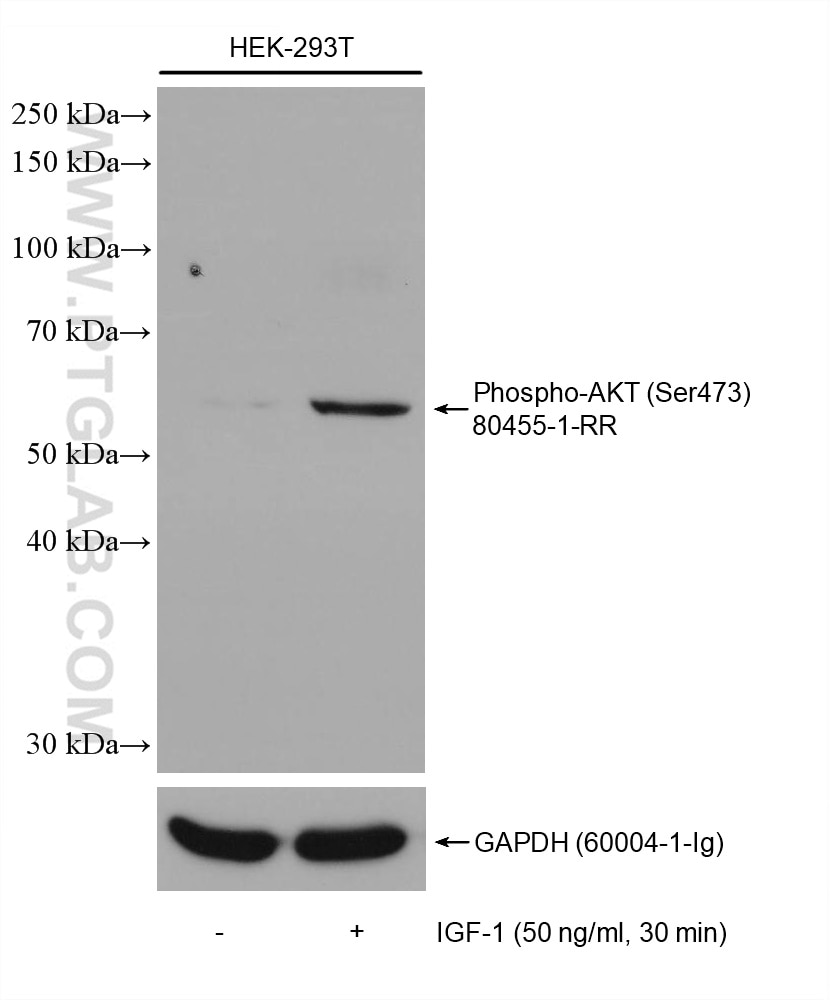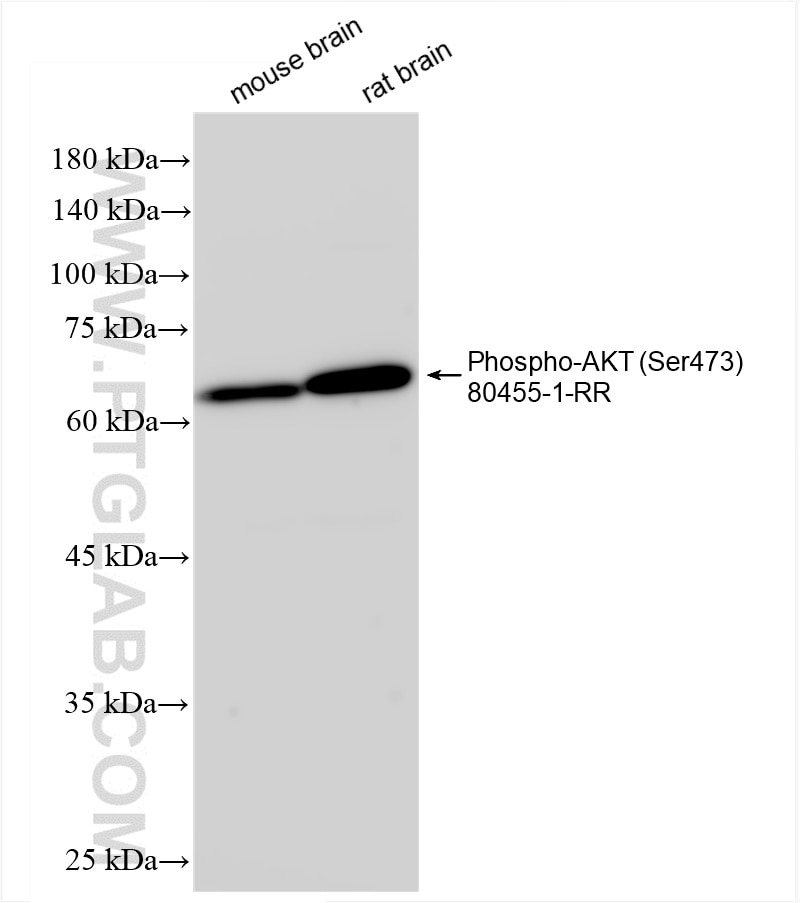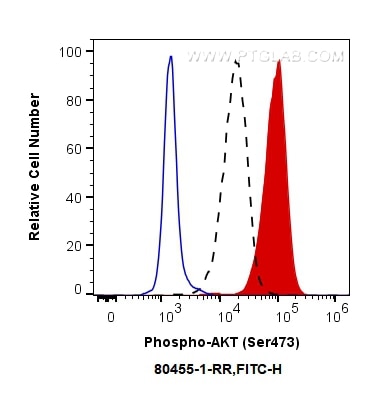Anticorps Recombinant de lapin anti-Phospho-AKT (Ser473)
Phospho-AKT (Ser473) Recombinant Antibody for WB, FC (Intra), Indirect ELISA
Hôte / Isotype
Lapin / IgG
Réactivité testée
Humain, rat, souris
Applications
WB, FC (Intra), Indirect ELISA
Conjugaison
Non conjugué
CloneNo.
2E17
N° de cat : 80455-1-PBS
Synonymes
Galerie de données de validation
Informations sur le produit
80455-1-PBS cible Phospho-AKT (Ser473) dans les applications de WB, FC (Intra), Indirect ELISA et montre une réactivité avec des échantillons Humain, rat, souris
| Réactivité | Humain, rat, souris |
| Hôte / Isotype | Lapin / IgG |
| Clonalité | Recombinant |
| Type | Anticorps |
| Immunogène | Peptide |
| Nom complet | v-akt murine thymoma viral oncogene homolog 1 |
| Poids moléculaire observé | 58 kDa |
| Numéro d’acquisition GenBank | NM_005163 |
| Symbole du gène | AKT1 |
| Identification du gène (NCBI) | 207 |
| Conjugaison | Non conjugué |
| Forme | Liquide |
| Méthode de purification | Purification par protéine A |
| Tampon de stockage | PBS only |
| Conditions de stockage | Store at -80°C. 20ul contiennent 0,1% de BSA. |
Informations générales
AKT is a serine/threonine kinase and it participates in the key role of the PI3K signaling pathway. Phosphatidylinositol-3 kinase (PI3K) is the key regulator of AKT activation. The recruitment of inactive AKT protein to PIP3-rich areas of the plasma membrane results in a conformational change that exposes the activation loop of AKT. AKT's activating kinase, phosphoinositide-dependent protein kinase (PDK1) , is also recruited to PIP3 microdomains. PDK1 phosphorylates AKT on threonine 308 (Thr308) of the exposed activation loop, activating AKT and leading to a second phosphorylation of AKT at serine 473 (Ser473) by a kinase presumed to be mTORC2 that further potentiates kinase activity. Active AKT will phosphorylate various downstream protein targets that control cell growth and translational control and act to suppress apoptosis. (PMID: 31594388, PMID: 30808672)
